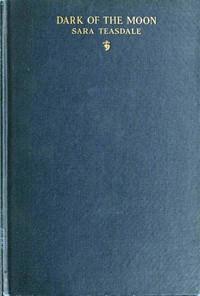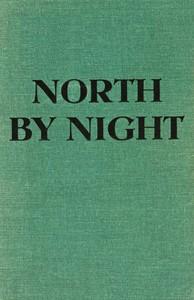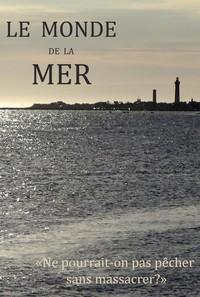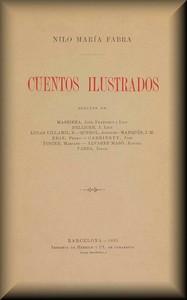|
|
Read this ebook for free! No credit card needed, absolutely nothing to pay.Words: 28299 in 5 pages
This is an ebook sharing website. You can read the uploaded ebooks for free here. No credit cards needed, nothing to pay. If you want to own a digital copy of the ebook, or want to read offline with your favorite ebook-reader, then you can choose to buy and download the ebook.

: The Southern Literary Messenger Vol. II. No. 8 July 1836 by Various Poe Edgar Allan Editor - American literature 19th century Periodicals@FreeBooksThu 08 Jun, 2023 Von Raumer presents a vivid picture of the miseries of Ireland. Much of our traveller's time, while in Great Britain was passed in close intimacy with her statesmen. Of Russell, Spring Rice, Sir Robert Peel, and O'Connell, he speaks in terms of evident respect. From many passages in which he mentions the latter, we select the following. Our traveller is in raptures with Windsor, and censures the tasteless folly of Buckingham house. Of the Italian opera in England he speaks briefly and contemptuously--nor does the national music find any degree of favor in his eyes. His criticisms on sculpture and painting are forcible and very beautiful. In some observations on the attic bas-reliefs, and the works from the Parthenon and Phigalia, to be found in the British Museum, he takes occasion to collate the higher efforts of Grecian art with the rudeness of Roman feeling, and the still more striking rudeness of the German and Italian schools of the fifteenth and sixteenth centuries. His remarks here are too forcible and too fresh to be omitted. We had noted many other passages for comment and extract-- but we perceive that we are already infringing upon our limits. This book about England will and must be read, and will as certainly be relished, by a numerous class, although not by a majority, of our fellow-citizens. The author, we rejoice to hear, has engaged to translate into his own language the Washington Papers of Mr. Sparks. We will only add that Professor Von Raumer has the honor of being called by the English organ of the High Church and Ultra Tory Party, "a vagrant blackguard unfit for the company of a decent servants' hall." MEMOIRS OF AN AMERICAN LADY. This work has been already a favorite with many of our readers--but has long been out of print, and we are glad to see it republished. Mrs. Grant of Laghan is a name entitled to the respect and affection of all Americans. The book, moreover, is full of good things; and as a memorial of the epoch immediately preceding our Revolution, is invaluable. At the present moment too it will be well to compare the public sentiment in regard to slavery, Indian affairs, and some other matters, with the sentiments of our forefathers, as expressed in this volume. In Albany and New York it will possess a local interest of no common character. Every where it will be read with pleasure, as an authentic and well written record of a most exemplary life. The edition is well printed on fine paper, and altogether creditable to Mr. Dearborn. Some remarks on slavery, at page 41, will apply with singular accuracy to the present state of things in Virginia. In the society I am describing, even the dark aspect of slavery was softened into a smile. And I must, in justice to the best possible masters, say, that a great deal of that tranquillity and comfort, to call them by no higher names, which distinguish this society from all others, was owing to the relation between master and servant being better understood here than in any other place. Let me not be detested as an advocate for slavery, when I say that I think I have never seen people so happy in servitude as the domestics of the Albanians. One reason was, that each family had few of them, and that there were no field negroes. They would remind one of Abraham's servants, who were all born in the house, which was exactly their case. They were baptised too, and shared the same religious instruction with the children of the family; and, for the first years, there was little or no difference with regard to food or clothing between their children and those of their masters. When a negro woman's child attained the age of three years, the first new-year's day after, it was solemnly presented to a son or daughter, or other young relative of the family, who was of the same sex with the child so presented. The child to whom the young negro was given, immediately presented it with some piece of money and a pair of shoes; and from that day the strongest attachment subsisted between the domestic and the destined owner. I have no where met with instances of friendship more tender and generous than that which here subsisted between the slaves and their masters and mistresses. Extraordinary proofs of them have been often given in the course of hunting or Indian trading, when a young man and his slave have gone to the trackless woods together, in the cases of fits of the ague, loss of a canoe and other casualties happening near hostile Indians. The slave has been known, at the imminent risk of his life, to carry his disabled master through trackless woods with labor and fidelity scarce credible; and the master has been equally tender on similar occasions of the humble friend who stuck closer than a brother; who was baptised with the same baptism, nurtured under the same roof, and often rocked in the same cradle with himself. These gifts of domestics to the younger members of the family were not irrevocable; yet they were very rarely withdrawn. If the kitchen family did not increase in proportion to that of the master, young children were purchased from some family where they abounded, to furnish those attached servants to the rising progeny. They were never sold without consulting their mother, who, if expert and sagacious, had a great deal to say in the family, and would not allow her child to go into any family with whose domestics she was not acquainted. These negro women piqued themselves on teaching their children to be excellent servants, well knowing servitude to be their lot for life, and that it could only be sweetened by making themselves particularly useful, and excelling in their department. If they did their work well, it is astonishing, when I recollect it, what liberty of speech was allowed to those active and prudent mothers. They would chide, reprove, and expostulate in a manner that we would not endure from our hired servants; and sometimes exert fully as much authority over the children of the family as the parents, conscious that they were entirely in their power. They did not crush freedom of speech and opinion in those by whom they knew they were beloved, and who watched with incessant care over their interest and comfort. The volume abounds in quaint anecdote, pathos, and matter of a graver nature, which will be treasured up for future use by the historian. At page 321 is a description of the breaking up of the ice on the Hudson. The passage is written with great power; and, as Southey has called it, "quite Homeric," we will be pardoned for copying it entire. Soon after this I witnessed, for the last time, the sublime spectacle of the ice breaking up on the river; an object that fills and elevates the mind with ideas of power, and grandeur, and indeed, magnificence; before which all the triumphs of human art sink into insignificance. This noble object of animated greatness, for such it seemed, I witnessed; its approach being announced, like a loud and long peal of thunder, the whole population of Albany were down at the river side in a moment; and if it happened, as was often the case, in the morning, there could not be a more grotesque assemblage. No one who had a nightcap on waited to put it off; as for waiting for one's cloak or gloves, it was a thing out of the question; you caught the thing next you that could wrap round you, and run. In the way you saw every door left open, and pails, baskets, &c. without number set down in the street. It was a perfect saturnalia. People never dreamt of being obeyed by their slaves till the ice was past. The houses were left quite empty: the meanest slave, the youngest child, all were to be found on the shore. Such as could walk, ran; and they that could not, were carried by those whose duty would have been to stay and attend them. When arrived at the show place, unlike the audience collected to witness any spectacle of human invention, the multitude, with their eyes all bent one way, stood immoveable, and silent as death, till the tumult ceased, and the mighty commotion was passed by; then every one tried to give vent to the vast conceptions with which his mind had been distended. Every child, and every negro was sure to say, 'Is not this like the day of judgment?' and what they said every one else thought. Now to describe this is impossible; but I mean to account in some degree for it. The ice, which had been all winter very thick, instead of diminishing, as might be expected in spring, still increased, as the sunshine came and the days lengthened. Much snow fell in February, which, melted by the heat of the sun, was stagnant for a day on the surface of the ice; and then by the night frosts, which were still severe, was added as a new accession to the thickness of it, above the former surface. This was so often repeated, that in some years the ice gained two feet in thickness, after the heat of the sun became such as one would have expected should have entirely dissolved it. So conscious were the natives of the safety this accumulation of ice afforded, that the sledges continued to drive on the ice, when the trees were budding, and everything looked like spring; nay, when there was so much melted on the surface that the horses were knee deep in water while travelling on it; and portentous cracks, on every side, announced the approaching rupture. This could scarce have been produced by the mere influence of the sun, till midsummer. It was the swelling of the waters under the ice, increased by rivulets, enlarged by melted snows, that produced this catastrophe; for such the awful concussion made it appear. The prelude to the general bursting of this mighty mass was a fracture lengthwise, in the middle of the stream, produced by the effort of the imprisoned waters, now increased too much to be contained within their wonted bounds. Conceive a solid mass, from six to eight feet thick, bursting for many miles in one continued rupture, produced by a force inconceivably great, and, in a manner, inexpressibly sudden. Thunder is no adequate image of this awful explosion, which roused all the sleepers within reach of the sound, as completely as the final convulsion of nature, and the solemn peal of the awakening trumpet might be supposed to do. The stream in summer was confined by a pebbly strand, overhung with high and steep banks, crowned with lofty trees, which were considered as a sacred barrier against the encroachments of this annual visitation. Never dryads dwelt in more security than those of the vine-clad elms, that extended their ample branches over this mighty stream. Their tangled nets laid bare by the impetuous torrents, formed caverns ever fresh and fragrant, where the most delicate plants flourished, unvisited by scorching suns or nipping blasts; and nothing could be more singular than the variety of plants and birds that were sheltered in these intricate and safe recesses. But when the bursting of the crystal surface set loose the many waters that had rushed down, swollen with the annual tribute of dissolving snow, the islands and low lands were all flooded in an instant; and the lofty banks, from which you were wont to overlook the stream, were now entirely filled by an impetuous torrent, bearing down, with incredible and tumultuous rage, immense shoals of ice; which, breaking every instant by the concussion of others, jammed together in some places, in others erecting themselves in gigantic heights for an instant in the air, and seeming to combat with their fellow-giants crowding on in all directions, and falling together with an inconceivable crash, formed a terrible moving picture, animated and various beyond conception; for it was not only the cerulean ice, whose broken edges combatting with the stream, refracted light into a thousand rainbows, that charmed your attention; lofty pines, large pieces of the bank torn off by the ice with all their early green and tender foliage, were driven on like travelling islands, amid the battle of breakers, for such it seemed. I am absurdly attempting to paint a scene, under which the powers of language sink. Suffice it, that this year its solemnity was increased by an unusual quantity of snow, which the last hard winter had accumulated, and the dissolution of which now threatened an inundation. CAMPERDOWN. Free books android app tbrJar TBR JAR Read Free books online gutenberg More posts by @FreeBooks

: North by night by Burchard Peter - United States History Civil War 1861-1865 Juvenile fiction@FreeBooksThu 08 Jun, 2023
|
Terms of Use Stock Market News! © gutenberg.org.in2025 All Rights reserved.






